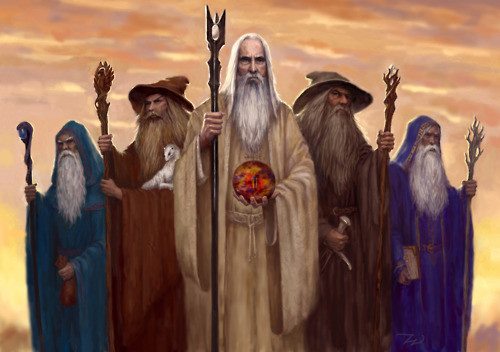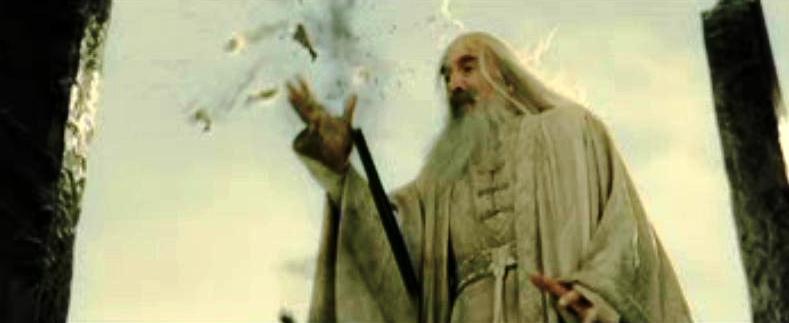In the Middle Earth universe, "Wizards" are actually Maia, angelic or god-like beings who have taken mortal form (and accepted some Human frailties) to act as guides and advisors in the struggle against Sauron. They have specialties (or at least personal preferences), determined by their association to whichever Vala they serve. Within Middle Earth they appear as aged Men with long beards, wearing robes of colors which denote their rank.
And they each carry a staff.

Why? If they are, themselves, semi-divine beings, then presumably all their powers (even in the abstract way that magic works in Tolkien's universe) come from their own selves, rather than from any devices. I've never heard of any tales about the "forging of the staves," and no one seems to be able to gain greater power by taking them. (At least, no one seems to try, and Sauron would likely be seeking them if their powers were transferable.)
Broken or lost staves seem to be re-creatable, but at the same time, the loss of one seems to be significant for the Wizard who loses it:
- In the movies, at least, Saruman is implied to have greater power when he takes Gandalf's staff and uses it along with his own during their fight in Orthanc, though that fight doesn't exist in the books. (Notably, this would indicate that a staff's power IS transferable, at least between the Istari.)
- Wormtongue insists that the guards of Meduseld "take the Wizard's staff" when Gandalf arrives. Given that Wormtongue is in league with Saruman, he would presumably know whether this would have any effect on Gandalf's abilities, and he clearly thinks it would.
- Gandalf makes a special effort to retain his staff when entering Meduseld, confirming that losing it would have an effect on his abilities.
- Gandalf prominently declares "Your staff is broken!" when Saruman is defeated, as though it is an important, even ceremonial, act.
- The destruction of his staff seems traumatic for Saruman, perhaps even somewhat painful from he way he gasps for breath.

What is the function of the staff for one of the Istari? What does it allow them to do, that they would not otherwise be able to do? Is it a way of exercising their Maia-level abilities, when they are otherwise restricted to their mortal forms? Or are they a device crafted after the arrival of the Istari, sort of like the Rings, to expand and augment their natural magic?
What do we know about the staffs of the Wizards?
Note: I've read this question, which focuses on Gandalf's relative strength with and without the staff. This question is more general than that: what does the staff even do, and where do they come from?
